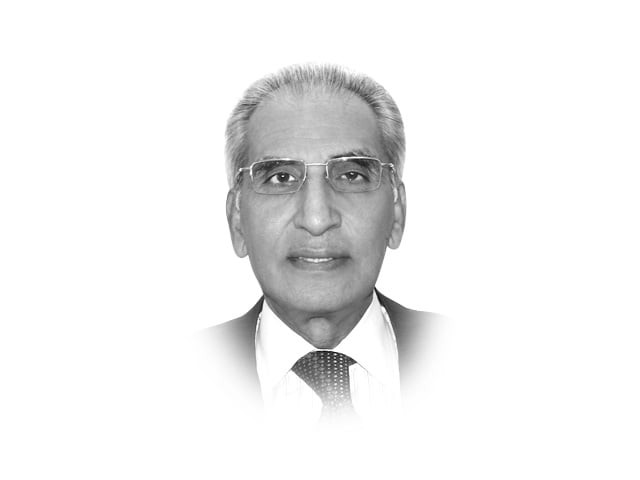Beyond Krishna’s visit
There can be no durable, sustainable understanding between Pakistan, India without movement on political differences.

That relations are on the mend is evident from the fact that without much fanfare, a subtle but significant change has taken place in Pakistan, where the government can take initiatives on relations with India, confident of support from the major opposition party, which had pushed for the normalisation process in the late 1990s and paid a huge price for this laudable objective. More importantly, the army that had reacted so very violently to the Lahore Accord has also modified its stance, demonstrating more appreciation of the global changes and their impact on the country.
Consequently, with little publicity, Pakistan has acceded to the Indian approach that understandings on trade, investment and consular matters should continue to proceed so as to ease tension and create an atmosphere that would hopefully lead to understandings on political differences. This was made clear by Indian External Affairs Minister SM Krishna when he said in Islamabad last week that though India appreciated Pakistan’s initiatives on the trade front, it would not be reducing pressure for prosecution of the Mumbai accused and for dismantling of the terror network allegedly based in Pakistan. Krishna stuck to this theme, emphasising that while India wants a strong and stable partner in Pakistan, it wishes to see visible progress on the issue of terrorism before it can contemplate meaningful dialogue on political issues.
This linkage was also evident in his response to the oft-repeated question regarding Prime Minister Manmohan Singh’s visit to Pakistan, when he emphasised that “the right atmosphere needs to be created for the visit”. Regarding issues such as Siachen and Sir Creek, Krishna emphasised that while India was committed to resolving all outstanding issues with Pakistan, “given the complexities of bilateral relations, we have to be patient as we move forward and build more trust and confidence in each other”.
This would explain why the peace process, resumed last year after a nearly two-and-a-half-year break following the Mumbai attacks, has registered progress only in the areas of trade liberalisation and people-to-people contact, whereas on issues such as the Wullar Barrage, Sir Creek, Siachen and Kashmir, there has been no significant movement. The common man desirous of seeing the two countries reduce, if not end, their acrimonious ties sees the signing of the liberal visa accord as facilitating closer contact and understanding. But the reality is that to the laundry list of differences that continue to plague the two countries, water-related issues and Pakistan’s concerns about India’s plans in Afghanistan have injected new urgency.
India’s insistence on maintaining the status quo on political differences may sell well in that country, but it would be unfortunate if it were to look at Pakistan merely as a market for its consumer goods and not as an essential element in the much desired and urgently needed regional cooperation, especially as a facilitator of energy imports. There can be no durable and sustainable understanding without some movement on political differences, notwithstanding the pious hopes of the two foreign ministers, both of whom emphasised that “we will not be held hostage to history”. And yet, Krishna could not help remind the Indian journalists that “we cannot forget (the Mumbai attacks), or gloss over it”. While Pakistanis respect India’s feelings on Mumbai, they are convinced that progress on doables such as Siachen or Sir Creek would reduce military presence on the international frontiers and provide a powerful impetus to the peace process which would strengthen the peace lobbies in both countries and give fresh hopes to Kashmiris on both sides of the divide. Krishna’s visit has had a positive impact, but India’s admirable economic growth and diplomatic successes should encourage it to offer bold and imaginative initiatives to Pakistan, rather than be satisfied with narrowly defined, transient objectives.
Published in The Express Tribune, September 11th, 2012.















COMMENTS
Comments are moderated and generally will be posted if they are on-topic and not abusive.
For more information, please see our Comments FAQ